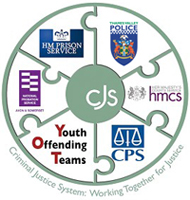Weekly Notes: legal news from ICLR – 4 March 2016
This week’s roundup of legal news and comment includes reports on the criminal justice system, a rallying cry for progress and transparency in the family justice system, and the use and abuse of freedom of information. Criminal justice: reports National Audit Office report The NAO has reported to the Ministry of Justice on Efficiency in… Continue reading
This week’s roundup of legal news and comment includes reports on the criminal justice system, a rallying cry for progress and transparency in the family justice system, and the use and abuse of freedom of information.
Criminal justice: reports

National Audit Office report
The NAO has reported to the Ministry of Justice on Efficiency in the Criminal Justice System (HC 852) and has found it wanting in a number of respects. Two-thirds of cases do not progress as planned, creating unnecessary cost: thus the CPS spend £21.5m preparing, and the Legal Aid Agency provided £93.3m to fund defence counsel for, cases that were not heard in court. Almost a fifth of all police charging decisions (18.2%) were incorrect and 38.4% of cases were not reviewed by the CPS before reaching court. The system as a whole is inefficient because its individual parts – police, CPS, courts, prisons, lawyers – have strong incentives to work in ways that create costs elsewhere, and because it is hopelessly out of date, being heavily paper-based and using antiquated buildings and equipment.
Moreover, all parts of it are struggling with reduced budgets. Despite or more probably because of this, the system is not delivering value for money.
Click here to read the full report (PDF).
JUSTICE report on complex and lengthy criminal trials
The report of a working party chaired by former DPP Sir David Calvert-Smith for JUSTICE, the all-party law reform and human rights organisation, has concluded that in spite of the difficulties involved, the jury has an important constitutional role to play in legitimising the criminal trial process and should be retained for complex and lengthy trials (CLTs). The report makes a number of recommendations about the preparation and management of such trials, to help jurors cope with the additional burdens, and the improve the efficiency of the trial generally.
Click here to read the report (PDF)
Freedom of information
Independent Commission reports
The government set up the Independent Commission on Freedom of Information on 17 July 2015 to review the Freedom of Information Act 2000. The Commission held a public call for evidence and has reviewed the Act as it has developed in the 10 years since it came into force. After receiving the Commission’s final report, the government published a written ministerial statement to respond to the Commission’s recommendations.
Click here to read the report.
In response to the report, Matt Hancock, Minister for the Cabinet Office and Paymaster General, laid a written statement in Parliament announcing, inter alia, that:
- The government does not plan to introduce new fees for processing FOI requests
- The government will in future only deploy the Cabinet veto after an Information Commissioner decision
- A revised code of practice will better advise authorities on the management of vexatious FOI requests and their refusal
- Code of practice to encourage better provision of FOI statistics
- Greater transparency about senior executives’ pay and benefits
In his Public Law for Everyone blog, Prof Mark Elliott comments in particular on the question of the Cabinet veto, which was such a feature of the Supreme Court’s decision in the so-called Black Spider Memos case, R (Evans) v Attorney-General [2015] UKSC 21; noting that
the Government could have chosen to procure legislation making ‘crystal clear’ Parliament’s position as to the intended breadth of the override power. In this way, the doctrine of parliamentary sovereignty could have been asserted in the face of what some, including Ekins and Forsyth, have characterized as judicial overreach by the Supreme Court in Evans.
But it chose not to. Elliott discusses the constitutional law implications.
Legal Aid
Media reports keep getting it wrong
Legal aid is not a “given”. It is not handed out like sweeties to only those citizens who have been good this term. This week has seen two spectacular examples of how the media, including non-tabloidy bits of it who really ought to know better, just keep getting it wrong about legal aid.
Poppi’s father
First, on Monday there were reports in various papers, including Metro, the Daily Mail, and, more surprisingly, The Times (£), about how the father of the deceased Poppi Worthington, who was named by a judge as having sexually assaulted his daughter before she died in 2012, had been “given” or “awarded” £117,000 in legal aid for care proceedings relating to his other children. The reports expressed outrage at the idea of such sums being made available to someone who had been found to have committed a terrible act on a child, and “with taxpayers footing the bill”.
The Times went on to say that
“Many other families get no money to fund family court cases because of legal aid cuts, with many having to act in person rather than hire lawyers.”
This quite erroneously confuses private law family cases (which don’t generally attract legal aid funding, thanks to the Legal Aid, Sentencing and Punishment of Offenders Act 2012 – LASPO) with public law care proceedings, for which ALL parents involved are automatically entitled to legal aid, as Lucy Reed pointed out on the Transparency Project blog: Poppi Worthington – legal aid.
Admittedly the report was not written by a member of the Times’s legal team, but instead by a “social affairs correspondent” – but even so, THEY COULD HAVE CHECKED.
Becky’s killers
Then, three days later, the BBC hysterically announced that “Becky Watts killers received £400,000 in legal aid”
and reported that a member of the victim’s family said they were
“disgusted that [the convicted defendants] Matthews and Hoare are seeking to appeal against their convictions and sentences, which would cost the taxpayer even more money.”
The clear implication was that, by reason of their iniquity, they did not deserve to be provided with free legal representation by the state, as required to meet the obligation of a fair trial. Although the report goes on to explain, for anyone reading below the screaming headline, that “Anyone facing a crown court trial is eligible for legal aid, subject to a strict means test,” it mixed this up with some stuff about reforms to the criminal legal aid system having been scrapped and how expensive it all is and then added that the same trial had also cost the Crown Prosecution Service a hefty £105,207.49.
The report provoked angry responses from lawyers on Twitter and a blog post from The Secret Barrister, asking Ok BBC, so what SHOULD we spend defending criminals?
If the BBC considers itself a serious bastion of fair and impartial journalism, it needs to do better than recycling MoJ press releases aimed at no higher cause than fomenting a public association between “legal aid”, “fat cat lawyers” and “undeserving child murderers”.
INCIDENTALLY, both reports admitted that they had got the figures by way of a Freedom of Information request. Much as one applauds transparency in the use of public (or “taxpayer’s”) money, the information made free should be responsibly deployed. Instead, it just seems to be used to generate bogus outrage and pad out stories which either don’t have a point or reporters can’t be bothered to investigate.
Family law

President rallies the troops
Sir James Munby, President of the Family Division, gave a rousing speech at the annual dinner of the Family Law Bar Association in Middle Temple Hall on 26 February, announcing a “new phase of reform” so fundamental it would make earlier phases “seem modest in comparison”. He mentioned the need to make the system simpler to accommodate litigants in person, and complained about the unnecessary complexity and obscurity of the Family Court Rules.
However, in expressing his view that the Red Book published by Jordans (the family equivalent of the White Book on civil procedure) should be consigned to the bonfire, I think he was unfairly conflating the rules with the practical and erudite commentary making up the bulk of that “monument of legal publishing”. (See, on this, David Burrows, on his blog: Burn Family Procedure Rules 2010.)
The President’s anticipation of the revolution which digital technology and online dispute resolution was going to achieve was largely expressed with a view to making it easier for litigants to manage without lawyers or the complicated rules by which they operated. Nevertheless, he said, lawyers were important. Society had needed advocates since the days of Pliny the Younger, and members of the association were helping some of the most weak and vulnerable in society, whom an “uncaring state” had “cast adrift”. Lawyers must learn to adapt, in order to survive:
“Keep to the substance of your craft, but be prepared to jettison what is only form” he urged.
Talking of form, and indeed forms: if I may sound a cautionary note, it would be to dampen Sir James’ evident enthusiasm for a digital revolution in which “thickets of numberless court forms” are reduced to a series of online templates featuring “self-populating boxes and drop down menus designed to ease and shorten the process of drafting”. Was it not a self-populating box in an online form that caused all the trouble in the notorious electronic Form E fiasco last year? (See Weekly Notes – 18 December 2015.)
Sometimes letting the computer do the thinking doesn’t automatically produce the proper result.
Transparency
In his speech the President flagged up two parcels of research into the effect of his transparency agenda, some conducted by Dr Julia Brophy with NYAS and a team of young persons, and some “parallel and equally important” research by Dr Julie Doughty, of Cardiff University.
Sir James is, of course, also President of the Court of Protection, and has issued parallel guidance on transparency. But in one respect the CoP has gone a step further. Since late January, the CoP has been running a pilot scheme to allow most cases that would normally be heard in private to be heard in open court instead, subject to certain protections, including reporting restrictions. Cases involving consent to serious medical treatment would be heard in open court anyway, but these other cases involve things like deprivation of liberty for persons lacking capacity to decide things for themselves. I visited the court one day last week to see how the pilot scheme was working in practice. I’ve written it up on the Transparency Project website and it’s also appeared on Inforrm’s blog.
For further information and updates about scheme, follow the Court of Protection Handbook blog, published by Legal Action Group. who also, incidentally, publish Community Care Law Reports.
Animals
RSPCA prosecution policy changes
Following publication in 2014 of the report and findings of the Wooler Review (conducted by Mr Stephen Wooler CB, former Chief Inspector of HM Crown Prosecution Service Inspectorate) which the society had commissioned in 2013, the society has spent the last year and a half reviewing its operations and has changed its approach to prosecuting certain kinds of offence involving animals. Most notably, perhaps, because it became a newsworthy issue, it has changed the way it deals with what it calls “red coat hunts”.
Under its new policy, it will initiate an investigation if it receives a complaint against a hunt, but then hand the matter over to the police, and will only continue if the police decline to act.
It will also avoid publicising its prosecuting role alongside fundraising appeals, or include fundraising in its reporting of prosecutions.
It is also seeking statutory powers for its inspectors.
The society has now appointed Hayley Firman, a barrister who worked with the CPS, as Head of Prosecutions fulfilling the recommendation that RSPCA Prosecutions should have a trained lawyer at its head. (It is rather surprising that this was not done before, quite frankly.)
See also: The Times, RSPCA to cut back on controversial prosecutions.
Dates and deadlines
Legal Aid Lawyer of the Year awards 2016
Nominations are now open – until 25 April 2016 – for this year’s awards, which include the following categories:
- Children’s Rights (Sponsored by Accesspoint)
- Criminal Defence (Sponsored by CILEx)
- Family Legal Aid (Sponsored by Resolution)
- Family Mediation (Sponsored by Resolution)
- Mental Health (Sponsored by DG Legal)
- Public Law (Sponsored by Irwin Mitchell)
- Legal Aid Newcomer (Sponsored by Friends of LALY16)
- Social and Welfare (Sponsored by Tikit)
- Legal Aid Barrister (Sponsored by The Bar Council)
- Legal Aid Firm/Not-for-profit Agency (Sponsored by The Law Society)
- Access to Justice through IT (Sponsored by The Legal Education Foundation)
- Outstanding Achievement (Sponsored by Matrix)
The Awards ceremony will take place on 7 July 2016
For details of how to nominate: Carol Storer Director, Legal Aid Practitioners Group, 12 Baylis Road, London SE1 7AA
Or, email: carol.storer@lapg.co.uk (with LALY AWARDS 2016 in subject line)
Law (and injustice) from around the world
This week we find two wedding stories and an election.
Iran
Election results boost for “progressive” Rouhani
Early results from last weekend’s election, as reported on Al Jazeera, showed reformist candidates had taken all of the 30 seats in the capital Tehran, while the allegedly progressive President Hassan Rouhani and his ally former president Hashemi Rafsanjani led the winners in the assembly of experts, which is responsible for selecting the country’s next supreme leader. The report remarks that:
A loosening of control by the anti-Western hardliners who currently dominate the parliament could strengthen Rouhani’s hand to open Iran further to foreign trade and investment following last year’s breakthrough nuclear deal.
Moreover, according to official results reported on Thursday, 14 female candidates, all reformists, won seats across the country, five more than the current nine members. In addition, seven are headed for a runoff in April, potentially bringing the number of female MPs to 21 – in what could be the largest female delegation in the history of Iran’s parliament, including the pre-1979 revolution assembly, said a later Al Jazeera report.
New Zealand
Pastafarian weddings permitted
The tirelessly informative Stowe Family Law LLP blog reported last week that New Zealanders can now marry in ‘Pastafarian’ ceremonies – based on a spoof religion the Church of the Flying Spaghetti Monster (FSM). The blog notes with some glee:
The country’s Department of Internal Affairs approved the first ‘Pastafarian’ wedding celebrant this month after the church won the right to marry people in December. Karen Martyn is the church’s first “ministeroni”. A post on the church’s Facebook page announced her new status but added that the first scheduled wedding had fallen through. The couple had decided not to “tie the noodley knot”. Couples who want to be married by Ms Martyn will be required to make a donation to the church between $150 (£72) and $800 (£385).
The post goes on to explain that the spoof faith was formed as a satirical counterblast to creationism in schools. The organisation was approved by the New Zealand’s Registrar-General of Births, Deaths and Marriages Jeff Montgomery.
The development strikes me a risky one. If you can have a real wedding according to the rites of a parody religion, why not a parody wedding based on a true – or at any rate serious – religion? Well, we tend to prosecute people for that, don’t we? (To adapt the old joke, Champagne for a real wedding, real pain for a sham wedding.)
Switzerland
Ban on equal marriage rejected
Voters in Switzerland have (by a narrow margin) voted down proposals to ban same sex marriage. Last week the country voted by 50.8% to 49.2% to reject a proposal put forward by the Christian Democratic People’s Party under the banner “for the couple and the family – no to the penalty of marriage”, According to Pink News
the initiative had been portrayed to voters as a way of ending fiscal inequality for married couples by reforming tax and would have changed article 14 in the Swiss constitution to redefine the gender neutral definition. But opponents said it would simply have replaced one form of discrimination for another.
Although Switzerland does not have marriage equality as such, registered partnerships have been recognised in Switzerland since 2007. Same sex sexual activity has been legal in some parts of Switzerland since 1798, the report notes, when the law was changed to correspond with the Napoleonic Code.
Bearing in mind the story from New Zealand above, one wonders how the Swiss democracy might view ceremonies according to the Rösti-farian religion. Here’s a suggestion for the wedding cake:
That’s it for this week. Thank you for following ICLR on Twitter, Facebook, LindedIn and this blog.
This post was written by Paul Magrath, Head of Product Development and Online Content at ICLR, who also tweets as @maggotlaw. It does not necessarily represent the opinions of ICLR as an organisation. Comments welcome on Twitter @TheICLR.
